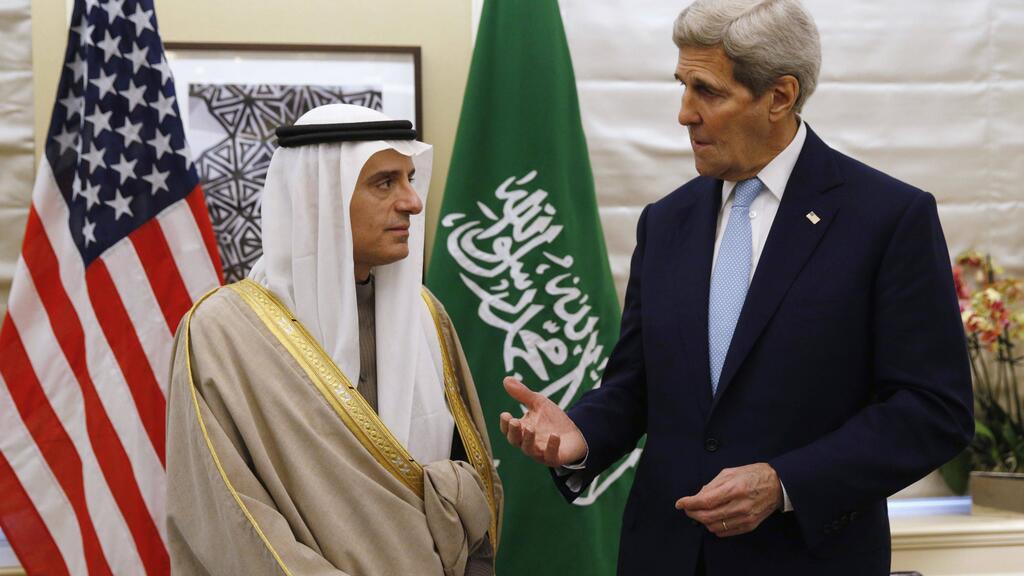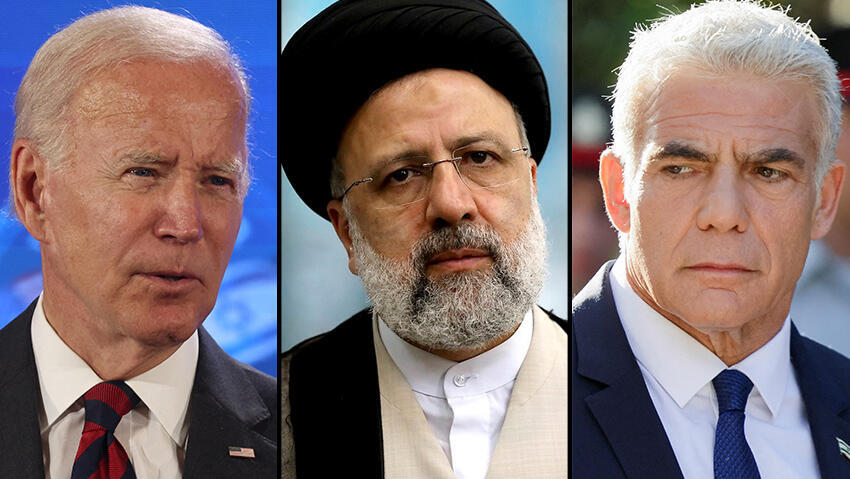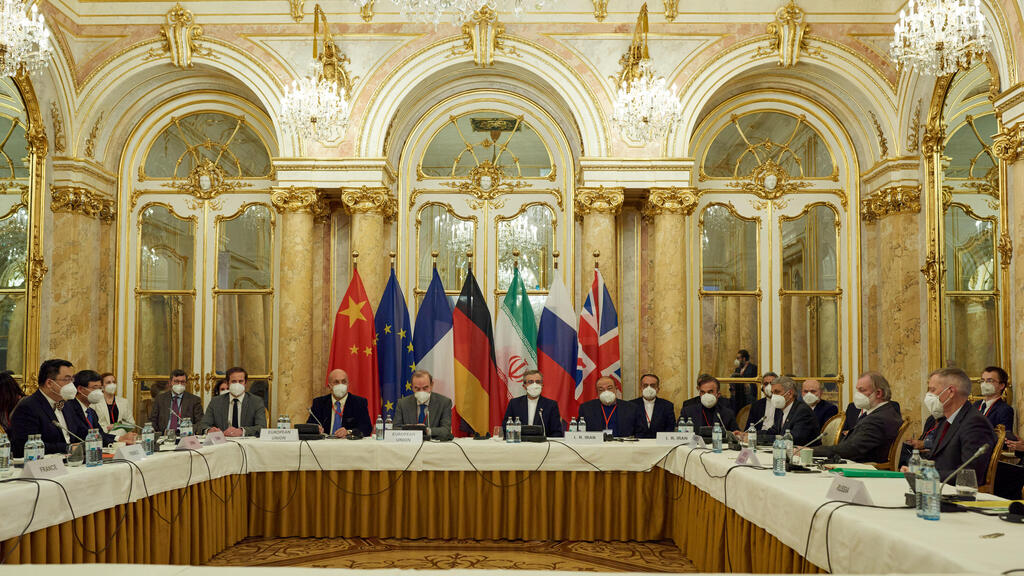Getting your Trinity Audio player ready...
While high-ranking Israeli officials are telling anyone willing to listen about the dangers of reviving the Iranian nuclear deal, Arab nations in the Gulf are keeping a low profile.
The reasons for this attitude lie not only in a different political and cultural system. The Gulf states do see Iran as a major challenge facing them. However, while Israel treats the Iranian nuclear program as a zero-sum game, the Arab approach is characterized by its duality.
3 View gallery


Former U.S. Secretary of State John Kerry meets Saudi Arabia officials on eve of sighing of Iran nuclear deal in 2015
(Photo: AFP)
Many of the Arab states understand they can’t face Iran alone, and therefore covertly cooperate with Israel to hold Iran back, while maintaining ties with Tehran at the same time. Every Gulf state maintains relations with Iran, with a goal to reach understandings, which will mitigate the risk of a bigger conflict.
Egypt and Jordan, located farther from Iran than the Gulf, are also troubled by the rising influence of Iran in the region, but rarely comment on the issue publicly, and do so mainly out of economic interest and their need to present solidarity with the Gulf.
The Gulf states would like to stop Iran’s nuclear project, but they understand it would require military action, which will result in an Iranian counterattack on their turf. “Israel has the means to protect itself, we don’t,” I once was told by a Gulf state official.
They also are not particularly fond of the potential removal of sanctions on Iran, in case the new nuclear deal is signed, and fear the fresh influx of cash will go towards further destabilization of the region by the Islamic Republic.
Although some Arab states, like the United Arab Emirates, are also expected to benefit from extended trade with Iran once sanctions are removed, the deal signals to them just how weak their main Western ally - the Americans - actually are.
However, they will likely never criticize the deal publicly in order to remain on good terms with the United States and receive their "compensation package" - advanced military equipment.
The Gulf states would rather have Israel do the “dirty work,” and it's likely some of them discussed it with Israeli officials. While Israel’s top priority is the need to halt Iran’s nuclear program, the Gulf states are mostly worried about Tehran’s involvement in Iraq, Lebanon, Syria, Yemen, Gaza and Afghanistan, as well as its ballistic missile arsenal.
3 View gallery


U.S. President Joe Biden, Iranian President Ebrahim Raisi and Prime Minister Yair Lapid
(Photo: Reuters, AP)
As far as the Gulf is concerned, once the deal is signed, Iran will be given a de-facto legitimacy to continue not only its nuclear activities, but to continue its rampage in the Middle East - directly or via proxies.
The Gulf countries will need Israel even more once the deal is signed. Their connections, however covert, with Israel contribute to their national security and serve as a deterrence factor.
But they will not be able to make these connections public anytime soon, especially not with Iran's rising power in the region.


